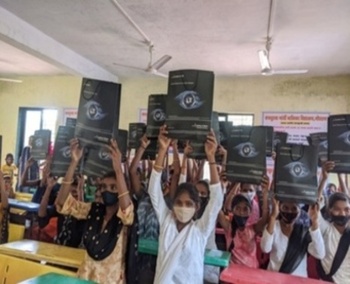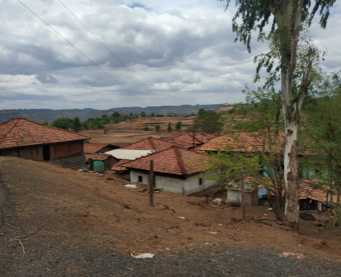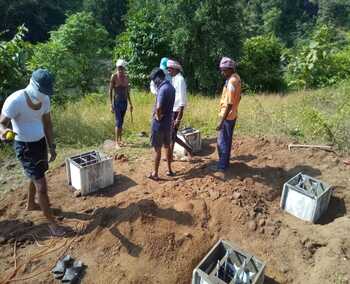LCSC Internship
10,000 young people have taken small and big
steps to help light up rural India, sustainably.
10,000 young people have taken small and big steps to help light up rural India, sustainably.
10,000 young people have taken small and big steps to help light up rural India, sustainably.
What our changemakers have to say?
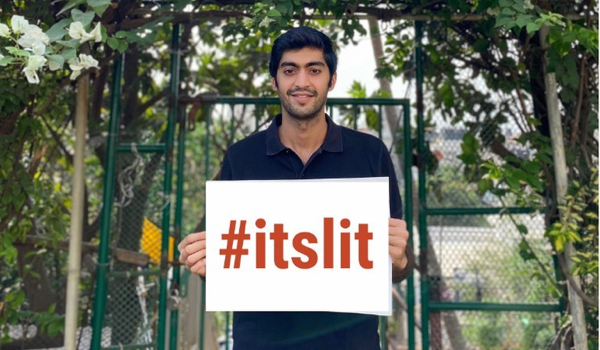
We are living in tough times! But a lot of us reading this are relatively leading lives where our basic and most privileged needs are fulfilled. Let’s be honest with each other - we still take this for granted! Over 300 million people in India don’t have access to electricity. 11 years ago, a young group of students started Project Chirag, an initiative to provide solar electrification across dark villages of India. From the tribal areas across Rajasthan and Maharashtra that I’ve visited to the time we’ve spent with NGOs in the city for resource enablement, every moment taught me something new and made me value our daily-life privileges. Today, over 500 hundred villages have been electrified through Project Chirag.
My experience with Project Chirag played a huge role in my personal growth. It is truly eye opening to see villagers living without the most basic facilities like electricity while we continue to live in abundance just a few hours away from them. The perspective was powerful for me and I highly recommend it to anyone going through initial stages of their life. My experience from 10+ years ago keeps me grounded to this day and helps me see the world through an extra set of empathetic lens. This is powerful and has helped me differentiate myself at so many stages of my career.Khushaal Talreja
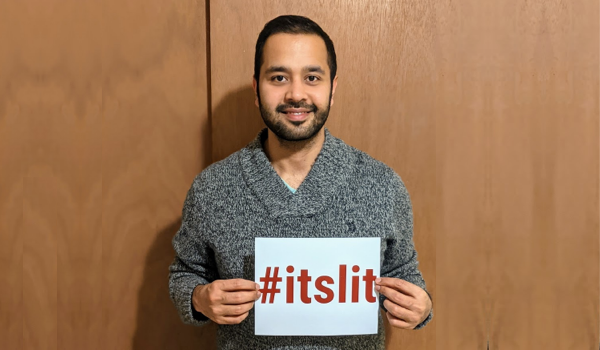
My experience with Project Chirag played a huge role in my personal growth. It is truly eye opening to see villagers living without the most basic facilities like electricity while we continue to live in abundance just a few hours away from them. I highly recommend it to anyone going through initial stages of their life. My experience from 10+ years ago keeps me grounded to this day and helps me see the world through an extra set of empathetic lens.
This is powerful and has helped me differentiate myself at so many stages of my career.Pawan Bhatia
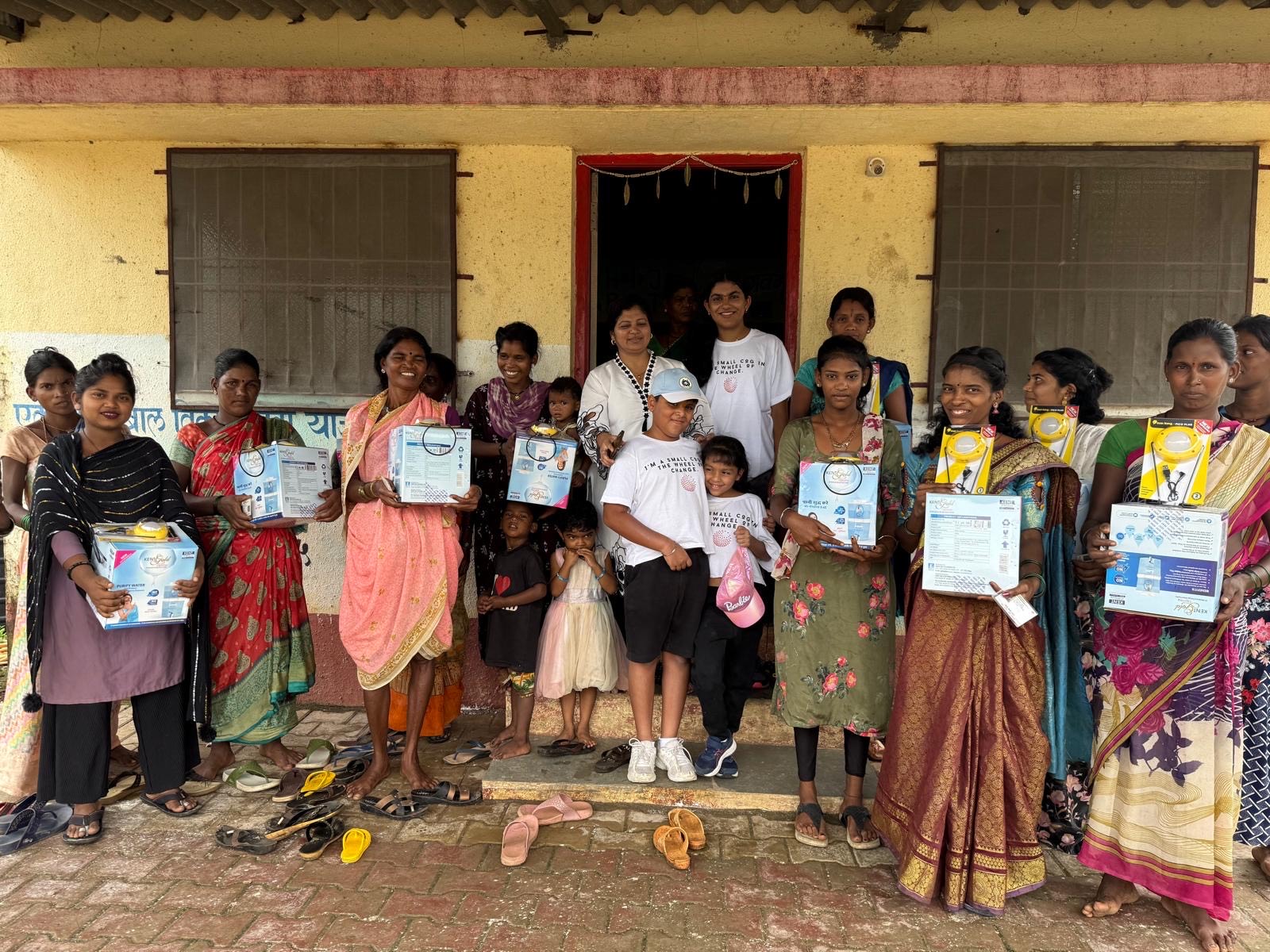
Over the past few years, my brother and I have been Youth Ambassadors for Project Chirag. As an intern, my brother had been visiting the villages for the past two years and would always come back with stories about the poor living conditions that the children and adults there had to endure....
Over the past few years, my brother and I have been Youth Ambassadors for Project Chirag. As an intern, my brother had been visiting the villages for the past two years and would always come back with stories about the poor living conditions that the children and adults there had to endure. Children being unable to study after dark because they had no light, women walking miles and miles just to be able to provide water for their families, people getting hurt because they couldn’t see the animals in the dark, and many falling sick due to the unfiltered water. It struck me that something simple I had always taken for granted could truly change someone’s life. Light. I realized that light wasn’t just about having power, but also about creating opportunities for people. I didn’t want to just listen to these stories, I wanted to act and do something to change this. It isn’t fair that so many people struggle for basic necessities while people like me don’t even think twice about them. I wanted to help these families live safer and healthier lives, while creating real, meaningful change. A small effort on my part could be life-changing for another person, so I believe it is my responsibility to do everything I can to make a difference. I knew I couldn’t fix everything, but I could start somewhere. That is why I started to fundraise for Project Chirag.
Coaching for Good started in August 2024. After a summer in India, where my brother would always come home with stories from the villages he visited as an intern, I felt it was time for me to do my part. Being as far away as I was, I was committed to raising money. So, I started small. Twice a week, I coached kids in basketball at a nearby park. The kids were having a lot of fun, I definitely enjoyed my time with them, and it also gave parents a reliable place to leave their children while running errands. Through all this, I raised $400. Certainly enough to make a difference. However, once September came around and school started, I had limited time but still wanted to grow this initiative to raise more funds to support even more villages. I made a website and reached out to people who I thought would be interested, and slowly, Coaching for Good began to grow. I was able to bring on volunteer high school students who were experts in their activity and were willing to spare just a little time from their busy schedules to coach elementary and middle school kids in six different areas (basketball, soccer, running, volleyball, tennis, and chess). While classes are free to attend, any donations collected go directly to Project Chirag. So far, with our 13 coaches, we have been able to hold 192 classes and have raised over $1500, and we continue to do so to support this cause.
Visiting the village was an extremely eye-opening experience. Seeing firsthand the conditions my brother had described had made everything feel much more real. On the drive there, I saw women balancing heavy buckets of water on their heads while walking long distances. When I arrived, I walked into the warmest welcome full of smiles, folded hands, and a tikka. This was something I did not expect, and I definitely didn’t feel worthy of it. Later, the kids sang a song they learned in school, and their voices and faces seemed full of joy and pride. Despite the hardships they face, the people are full of resilience and hope. I realized how incredibly resourceful they are. Hearing them talk about how they cut up plastic water bottles and turned them into something very useful when putting it in the soil was shocking to hear because for me, a water bottle was always just a simple water bottle that I throw away when I am finished. Nothing else. But for them, they turned it into something so much more in a way I never could have imagined. As I handed each family a solar light and water filter, they seemed so grateful. The genuine smile on their faces made it clear that to them, this was so meaningful. That moment made all the fundraising feel worth it. Seeing the impact firsthand inspired me to want to raise even more funds and do even more for the villages. It made me excited to come back next summer to visit the villages and help even more people. This experience was certainly one I will never forget.

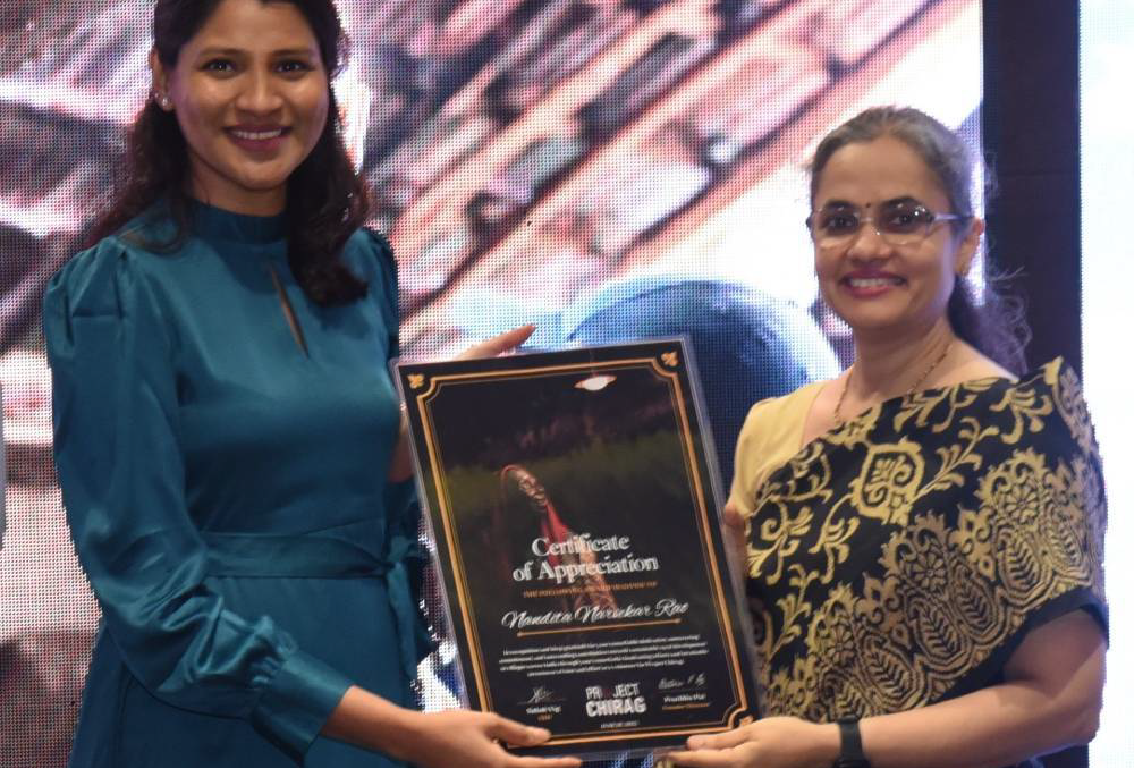
My role has changed over the last 10 years from a student to a volunteer, to an alumni, to a fundraiser, and now to a donor to this initiative. Yet, I still get goosebumps when I visit a village to light up a household. Personally, visiting the villages to install solar lights is an experience beyond words...
My role has changed over the last 10 years from a student to a volunteer, to an alumni, to a fundraiser, and now to a donor to this initiative. Yet, I still get goosebumps when I visit a village to light up a household. Personally, visiting the villages to install solar lights is an experience beyond words.
An experience that inspires me to do better every day and restores my faith in humanity. I have participated in many rural visits over the years but what has remained common throughout all my visits is the simplicity and hospitality offered by each villager. Right from meeting our grass-root level NGO partners, crossing over all those uncomfortable roads to reach the destination, villagers welcoming us at an assembly point where mattresses are arranged for us under a tree along with cold water, children gathering around with curiosity to see what goodies we have brought in those big boxes to all the women feeling shy to interact with us and covering their faces/heads with a dupatta. My personal favorite is when the distribution of solar lights begins and each villager comes in front to accept his/her light. During this process, we encourage them to either put their signature or a thumb impression confirming the receipt. The joy of empowerment that I have witnessed in the eyes of the villagers while putting the signature is profound. When we proceed with the installation process, all of them welcome us to their households and greet us with genuine warmth. The solar light not only lights up the house but also their faces. Most of my visits have ended with me coming back to the assembly with gratitude and hands full of cucumbers 🙂
During this rewarding journey of social change, I have been extremely blessed to have met some great fellow students and CRDF staff who have taken this program to this height. For me, one of the best things in life is “seeing a smile on a person’s face and knowing that I am the reason behind it”. I am grateful to Project Chirag for giving me the platform to witness a lot of smiling faces. Furthermore, I am determined to grab every opportunity that crosses my path to put a smile on these villagers’ faces in the coming years.

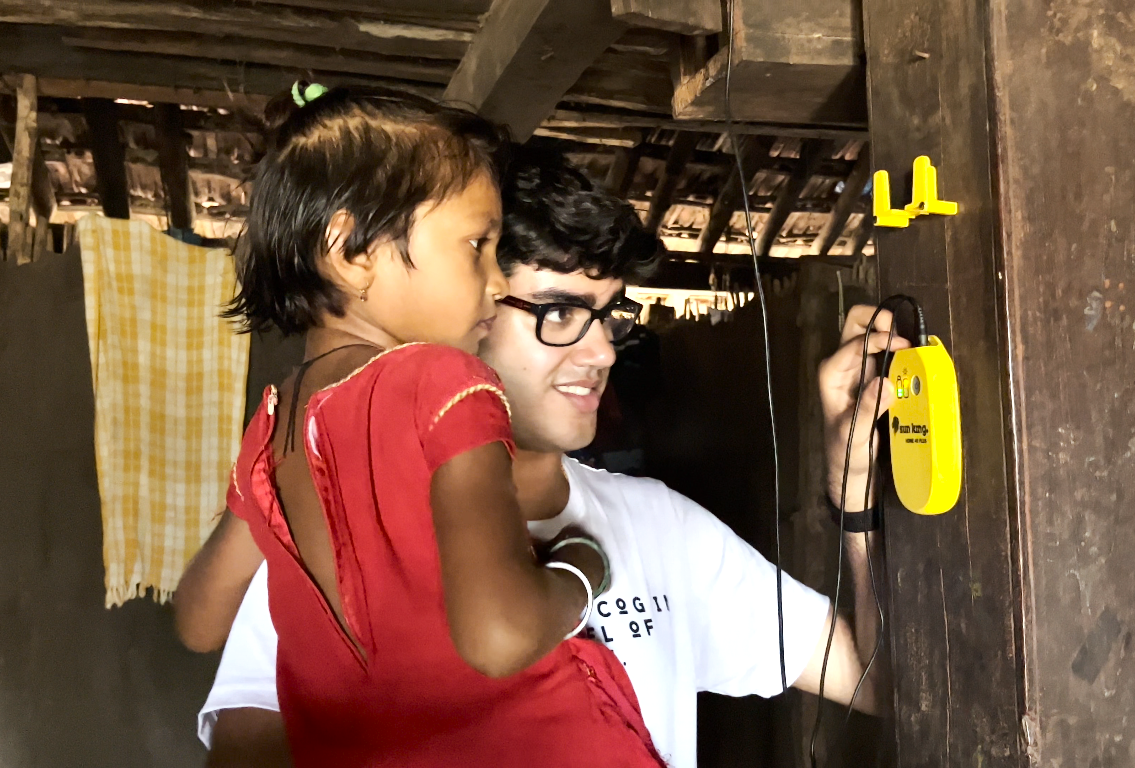
I have been with Project Chirag as a Youth Ambassador since February of 2021. I was pitched by my massi and my mom about how Chirag is a great initiative and I should be proud that I was a Youth Ambassador, and even though I was, I honestly did...
I have been with Project Chirag as a Youth Ambassador since February of 2021. I was pitched by my massi and my mom about how Chirag is a great initiative and I should be proud that I was a Youth Ambassador, and even though I was, I honestly did not understand what they did as an organization. I was isolated in my little Short Hills bubble and was not able to recognize Chirag’s work. I was just blinded by the title of Youth Ambassador that would go on my résumé. When I found out that I would be doing an internship program with Project Chirag during my summer break, I was excited – not for the reason that I would be doing charitable work, but because I was going to work in an office with other interns. Then, I found out about the village visit.
I honestly don’t know what I felt about it. I was excited to go see everything that this organization has done firsthand at the site(s), but then I was nervous that my gora self was going to go to an isolated village with no light or clean water. One where I had to go to the bathroom in the bushes. The village trip changed my perspective of Project Chirag, or rather it changed my motivation. At first, the motivation behind Youth Ambassador and Intern was always just that it would go on my résumé as charity work and it will help me get into a good college, but after the trip, it changed to actually wanting to do the work for the people and children of the villages rather than the résumé. The first school that we visited, ZP Upper Primary School in Wahagav, was honestly my favorite. Everything felt so real. I walked into a classroom and waved to two students, and everyone waved back laughing and smiling. In the next classroom, 6 kids were wrestling and play-fighting. In the next, numbers were being counted and songs were being sung. These were all things that I did back in elementary school as well.
The school made it possible for me to actually connect to what I was doing. All these kids were just like us, except they deserved much more that was not being given to them. There was even a painting on the wall of a water filtration system, one they did not have. A painting of the water cycle. Of the solar system. Of the squares of 1-10. Again, all things that we learned as well. The next stop was an Anganwadi in Ambhu. This was where I installed a fan and two lightbulbs and saw the installation of a solar street light. Putting together the fan and then hanging the two bulbs immediately brought upon a sense of self-satisfaction. Although the chair was shaking (not my legs), my hands were being bitten by mosquitoes, and the bulb wire was not going through, when everything came together, I immediately felt really proud of myself. Proud that one school was going to be able to have light. One school was going to be able to have a fan. One school would be able to run more smoothly. Then I realized it was one school. There were hundreds more and there would always be hundreds more. The idea of learning in immense heat without any light and going back to a home where there again was no light and only dirty water to quench your thirst was no longer inconceivable. The next village was Tambdewadi.
This was where I actually saw a couple of people coming to fill their buckets with water. There was a very old woman who came, followed by a girl not more than 7 years old who did the same. This opened my eyes to the young age at which these children were exposed to the hardships that they will have to endure for the majority of their lives. In Padharwadi, I was able to see the solar panels on the pond. This gave way to 6 outlets that would help with farming and irrigation, as that was virtually the only source of income for the villagers. We even had a discussion with a former Naval officer who, after retiring, came back to the village to stay. The next and final village was Viram. Not much was done in Viram, besides the fact that we ate an extremely delicious meal and I was made to climb up a hill against my will.
Additionally, we saw a massive well so deep we could not even see the pump that fed water into the tank. The food that we ate was the true farm-to-table experience. It was one of the most delicious meals I had in quite a while – even the rice was delicious. The locals who welcomed us into their home were very kind and appreciative of the work Chirag was doing. They made food for upwards of 10 people without taking a single rupee. I realized how giving and kind the villagers are, regardless of the situation they are in. In conclusion, the village visit with Project Chirag changed the determination I had to work with them. My perspective shifted from one that was focused on my résumé to one that was actually focused on the people and the villages. It opened my eyes to the villagers and how they were really very similar to any one of us.
It was also very self-fulfilling when I physically helped make a change when installing the lightbulbs, making the fan, and even seeing the previous work the organization that I can now call myself a part of has done.

The Chirag Youth Ambassador Program is a learning experience that nurtures the next generation of changemakers.
This year-long intensive program is aimed at developing the skills and talents of high-school students with high leadership potential. We aim to support each ambassador’s talents and provide them with a platform to develop into well-rounded individuals, capable of solving complex social problems. Students studying in Grade 9 to 12 are eligible to apply for this programme.
Why you may want to be a youth ambassador? Because..
Why you may want to be a
youth ambassador?
Because..
You are the leader of tomorrow
You want to reinforce your value system
You want to build brand “YOU”
You want to share your privilege

Why Renewable Energy?
Renewable energy is more essential today than ever before, and understanding its need and uses, for development, is critical.
In our privileged lives, we have access to what we consider rights. The right to Light, Water, Homes, Education, and Income. Many of our villagers all over India have access to none of these. You can help us change that.
Our team is passionate, about our villagers, about going green, about our youth, and above all, about being the change we want to see. Special orientation and mentoring sessions with them will add to your journey.
What Can You Do?
From spreading awareness about renewable energy and the conditions of rural India, to running creative fundraising campaigns, you can make a difference in the lives of young people just like you.
